Surrounded by sex toys and condoms, three people in their early 20s discuss a shared disinterest in sex.
Yumi, Kaya and PK recall being told that they would become curious about sex and perhaps start having sexual desires during puberty, and that an interest in intercourse often increased at university – long considered an environment for exploring new things. The trio, however, beg to differ.
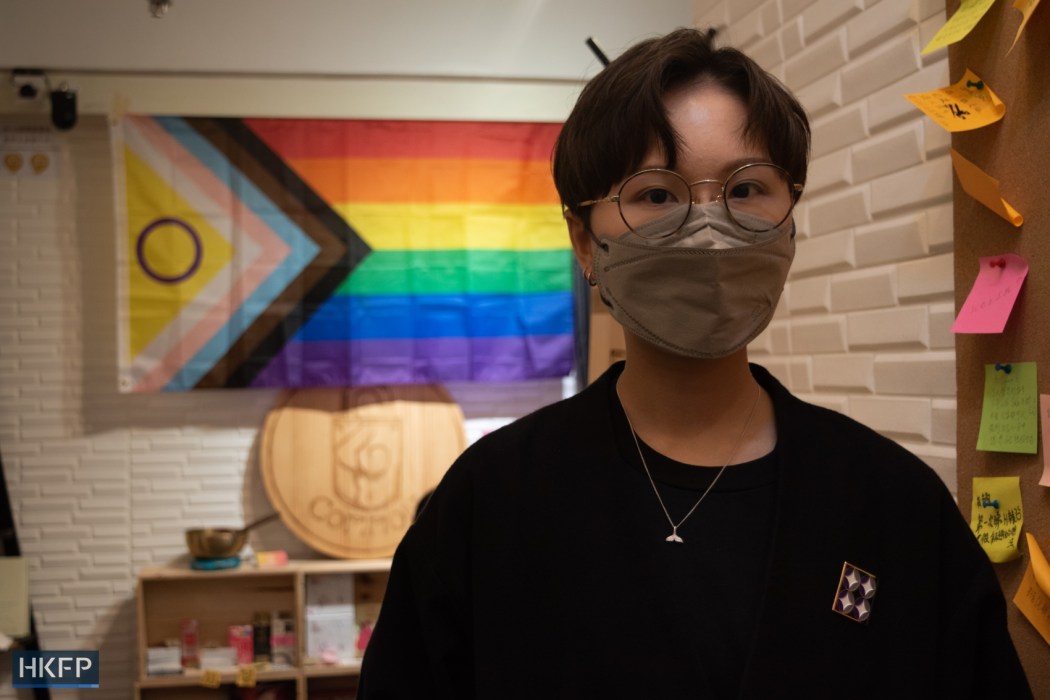
“I had a partner when I was at college and I went abroad for an exchange trip. At the time, I would imagine if my partner came to visit and stayed with me in my dormitory. Some people might think: ‘something must be bound to happen at night.’ But I did not have any such thoughts,” Kaya says.
Kaya, who is 24 years old and uses the pronouns “she” and “her,” says she did not pay much attention to her indifference to sexual activities or sex-related intimate behaviours initially. She met her first love while she was at secondary school, so she did not find it too peculiar that the topic of sex did not come up. “We were so young,” she says.

It was not until her friends started sharing details about their physical relationships that Kaya wondered why she had never thought about being intimate. She slowly began to embrace her identity as an “ace” – a term asexual individuals used to describe themselves, which is derived from the pronunciation of the first syllable of asexual.
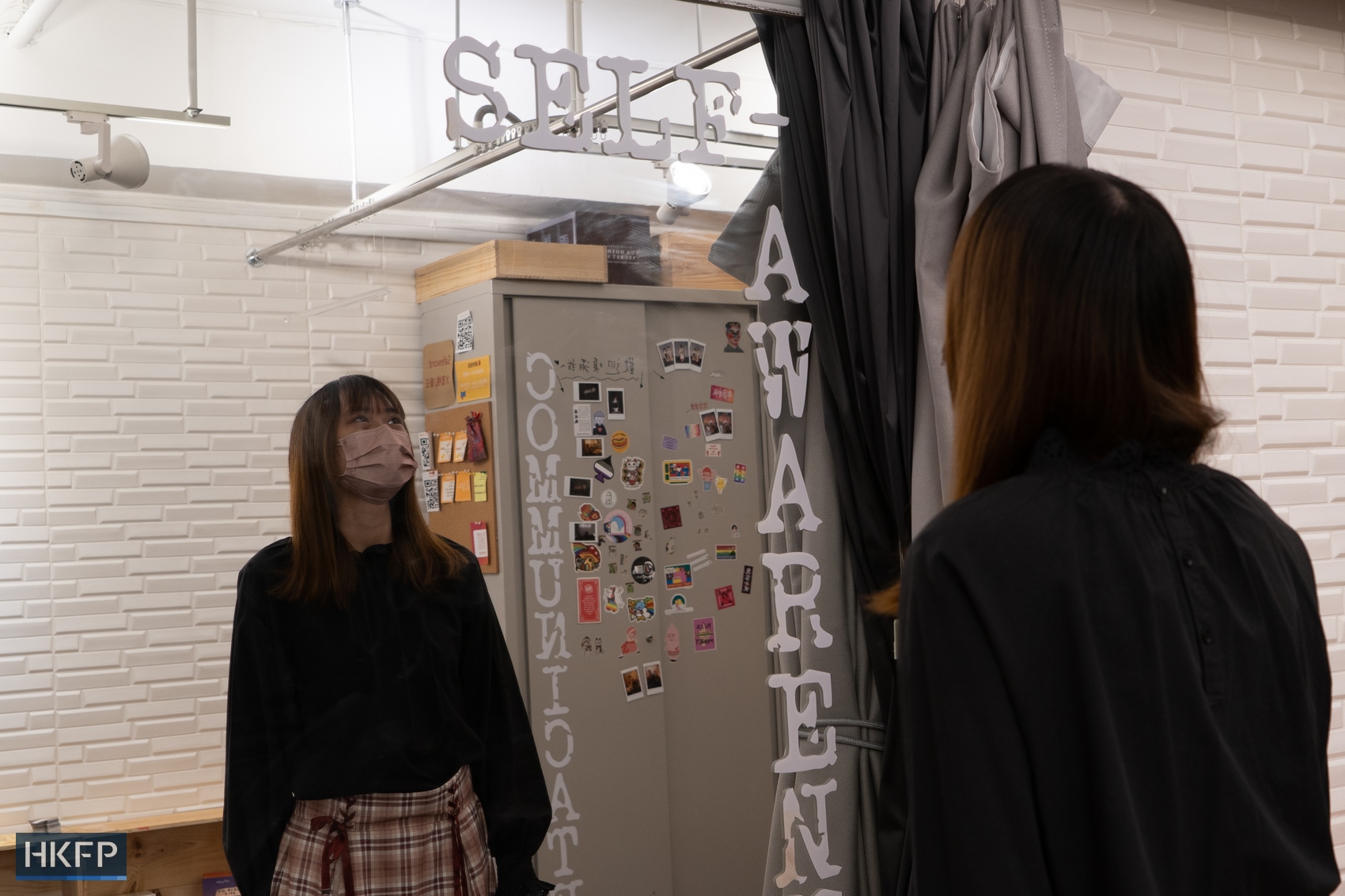
Kaya also identifies as panromantic, which means she is attracted to a person romantically regardless of their gender identity. Soft-spoken and fixing her hair occasionally, Kaya appears shy, but sounds firm when talking about the identity she feels comfortable with – and what she does not like.
PK, who styled her hair in a bun and wore a Harry Potter-style scarf on the day of the interview, is the youngest among the trio. PK goes by the gender-neutral “ze/zir” pronouns and identifies as “aro-ace,” meaning ze is aromantic and asexual. Aromantic generally refers to a lack of interest or desire towards romantic relationships.

“Biologically, I have had sexual desires before, but that desire stopped with me. I never wanted to involve other people to engage in any sexual intercourse or sexual activities,” PK says, explaining people can be on different parts of the asexual spectrum.
The A-lephant in the room
Kaya, Yumi and PK co-founded an LGBT+ group called A-lephants in September, with a focus on addressing the elephant in the room: asexuality.

People are familiar with the rainbow flag, which has become the symbol of the LGBT+ community, but the black, grey, white and purple striped flag that represents the asexual subgroup is lesser known.
Kaya, PK and Yumi say they also only learned of the concept of asexuality in recent years, and found that the label matched their state of mind better than any other terms.
A-lephants is a branch of the Saan Sing Sex and Gender Concern Group, a student group at the Chinese University of Hong Kong which discusses and raises awareness of various issues related to sex and gender. The trio connected through the club and felt the need for a more centred platform to discuss asexuality as they came to know more peers who identified on part of that spectrum.
What is asexuality?
“An asexual person does not experience sexual attraction – they are not drawn to people sexually and do not desire to act upon attraction to others in a sexual way,” according to the Asexuality Visibility and Education Network (AVEN), founded in 2001, which hosts the world’s largest online asexual community.

Asexuality is an orientation and has a wide spectrum. Some people may have no interest in sexual activities at all, while some can develop conditional sexual attraction, for example towards people with whom they have established a strong emotional connection – often referred to as demisexual.
Graysexual, or gray-asexual, usually refers to individuals who may feel a minimal amount of sexual attraction despite mostly aligning with their asexual counterparts.
Visibility for awareness
A-lephants held its first and, it claims, Hong Kong’s first Asexual Awareness Week event in the last week of October. The group teamed up with PrideLab, which was established in 2013, to organise a two-day exhibition and workshop.

The occasion included two “human library” sessions, a movement that originated in Copenhagen and aims to challenge stigma and stereotypes by arranging encounters between people who might not otherwise meet and encouraging people, or “human books,” to tell their stories.
At A-lephants’ event, members of the asexual community shared their stories and interacted with other attendees.

Kenn Chan, the creative director of PrideLab, says visibility is the first step of raising awareness.
“We progressed from talking about lesbians and gays to discussing LGBTI+ and many more. Every time a new English letter was added was because someone showed up. Members of those sexual minorities came out and made themselves visible,” Chan says.
Sexuality without sexualisation
Yumi, who uses the pronouns “they” and “them,” was one of the human books. They shared their experience of studying in Taiwan and the process of learning about asexuality. Yumi, who now identifies as asexual-queer, says they were once confused about their sexuality.

“An acquaintance once asked me, ‘your nails are really long, are you really a lesbian?'” Yumi recalls.
“People always joke about fingers being a lesbian’s sex organs,” they add.

“At that time I felt like my sexual orientation, my gender identity were being defined by something highly sexualised. And as I was not interested in sex or romantic relationships, I didn’t seem to fit in to the homosexual community.”

In spite of finally finding an identity they are comfortable with, the process of explaining it to others is tiring and can seem endless. People seem to find it easier to understand when people are attracted to others of the same sex, Yumi says, but are puzzled by the idea that someone is not interested by sex, and will sometimes pass judgement.
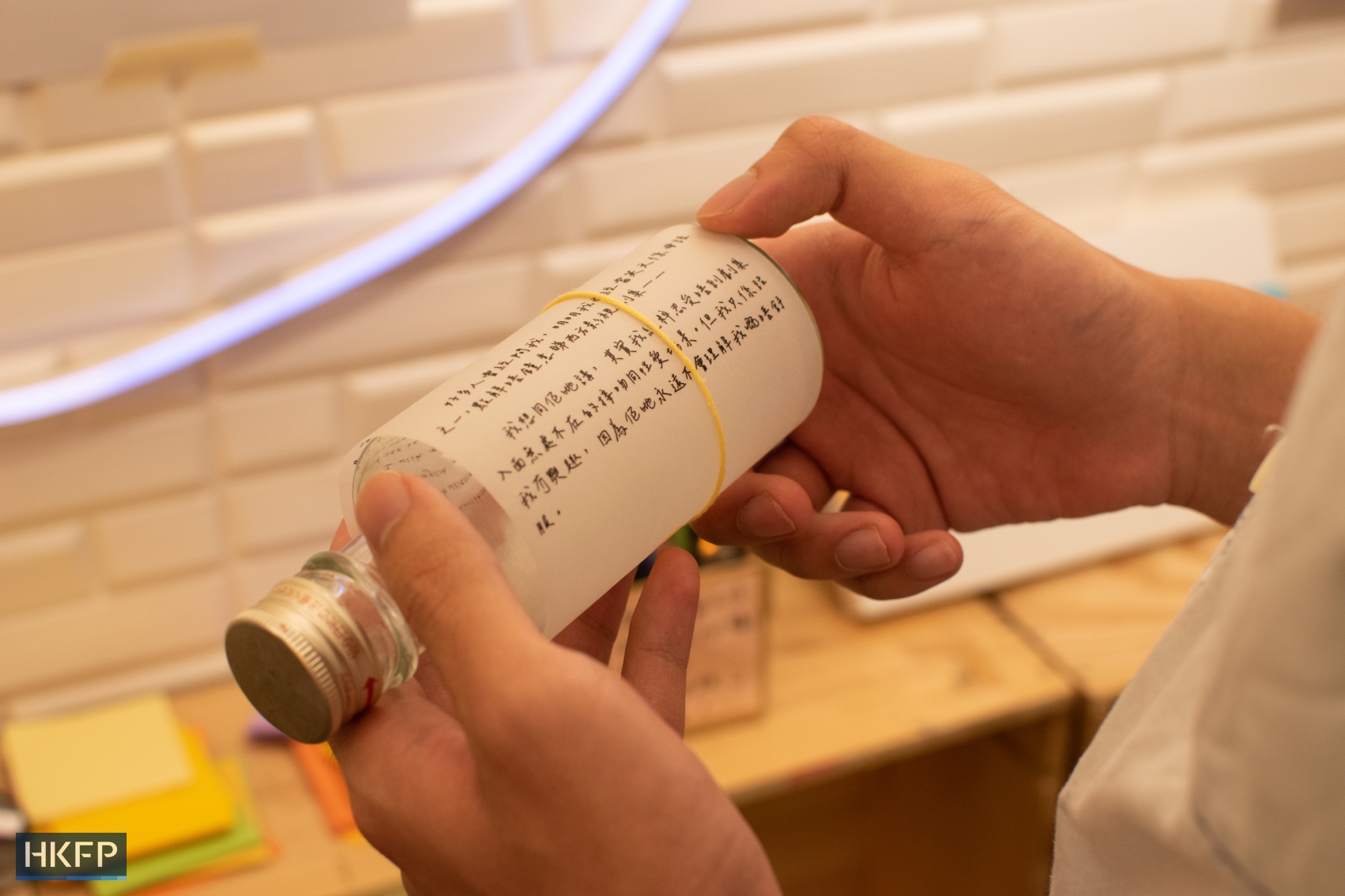
“Asexual people may not want to experience sexual acts with their partner and because of that, questions over whether they love their partner enough are sometimes raised,” Yumi says. Such judgement or perception may hinder aces from forming relationships, they add.
It was like that for Cadence, a transwoman who identifies as asexual but aspires to have a romantic relationship. She has had three relationships – the first with a woman before she transitioned and two with men as a transwoman.
The 25-year-old broke up with all her partners because they wanted to have sex despite her disinterest.
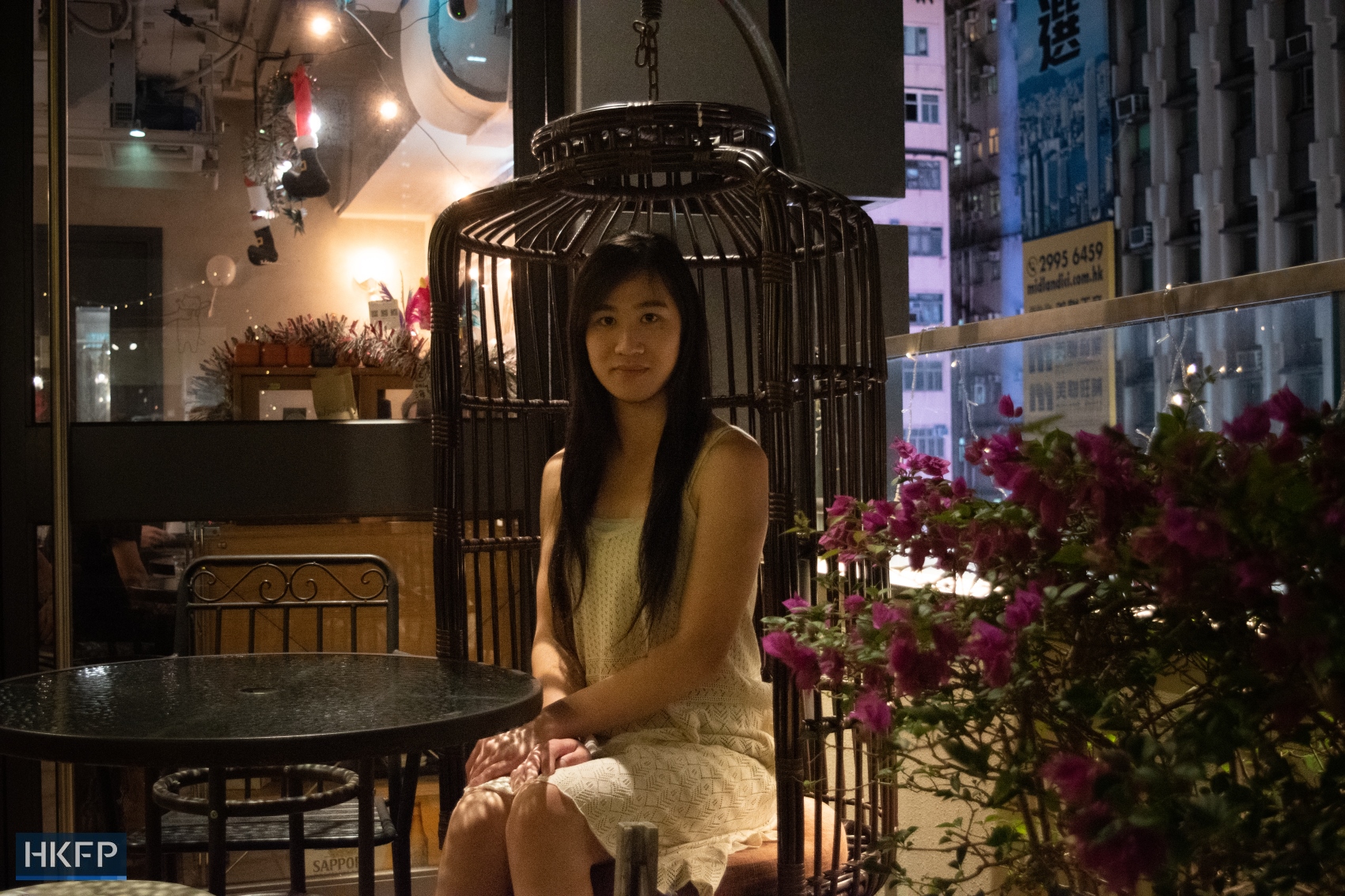
“Before I started dating my two ex-boyfriends, I told them I did not want to have a sex life. At the time they both said ‘OK, it’s not a problem,’ but after we started dating, they still wanted [to have sex],” Cadence says.
Cadence, who is taking hormone pills but is yet to undergo gender-affirming surgery, says it is not her genitalia that makes her uncomfortable with having sex.
“Even if I undergo surgery in the future, and can have sex [with a vagina], I will not want it,” she says. “I’m just not interested in [sex].”
Unnecessary justification
Kaya, PK and Yumi told HKFP that they felt like asexual people had to constantly justify their absence of desire or interest in sex.
Kaya says a close friend from her all-girls secondary school suggested that she may have been “suppressed” by a culture of avoiding discussions about sex when she was younger, and that suppression continued to this day. Her friend was worried she was “too fixated” on her asexual identity, she says.

When PK told zir mother about it, zir mother said: “perhaps you have not met the right person.” It is a comment many aces have heard.
“They think it’s because you are still young and have not experienced enough, and you have not met the person that you adore so much that you would enjoy [sex] with them,” PK says.
Yumi says sometimes people think being asexual is “only a delusion, or a stage,” and may encourage them to visit a doctor or a counsellor if they continue to feel that way.
Invisible oppression
That the feelings of ace individuals are often dismissed appears to be a shared experience.
Linus, a trans man who identifies as demisexual, says that compared to other groups under the LGBT+ umbrella, discrimination against asexual or demisexual people may not be that obvious, but the oppression they face is essentially the same. Often, the challenge they face is how to explain to others they do not have sexual desires.

“We all suffer the same type of oppression from the mainstream heterosexual [values] – that we need to be in a heterosexual relationship at some point to be recognised.” Linus says.

“It’s just that [the difficulties] faced by gays or lesbians are more easily visualised – they have found a partner but they cannot bring them out. For people on the ace spectrum, the struggle is they don’t have anyone to bring.”

Linus was part of the organising committee of this year’s Pride Parade, which took the form of a rainbow market due to Covid-19 restrictions. The highlight theme was asexuality.
Although asexual and demisexual members remain a minority within a minority, Linus is hopeful of progress as more people come out and come together, allowing a network and a community to emerge. This also encourages people to “find your label and talk about your label,” he says.
Love without sex
There are a lot of misconceptions around asexuality and towards people who identify as asexual or aromantic. One is that they do not experience love.

“I think this is the biggest misunderstanding in the whole universe,” PK says. “It’s not that we don’t know how to love or we are incapable of loving others. We just don’t perceive love the same as the way other people in society or the mainstream media portray it in pop culture.”
PK and Yumi say what they look for in any relationship is the bond they can establish with another person.
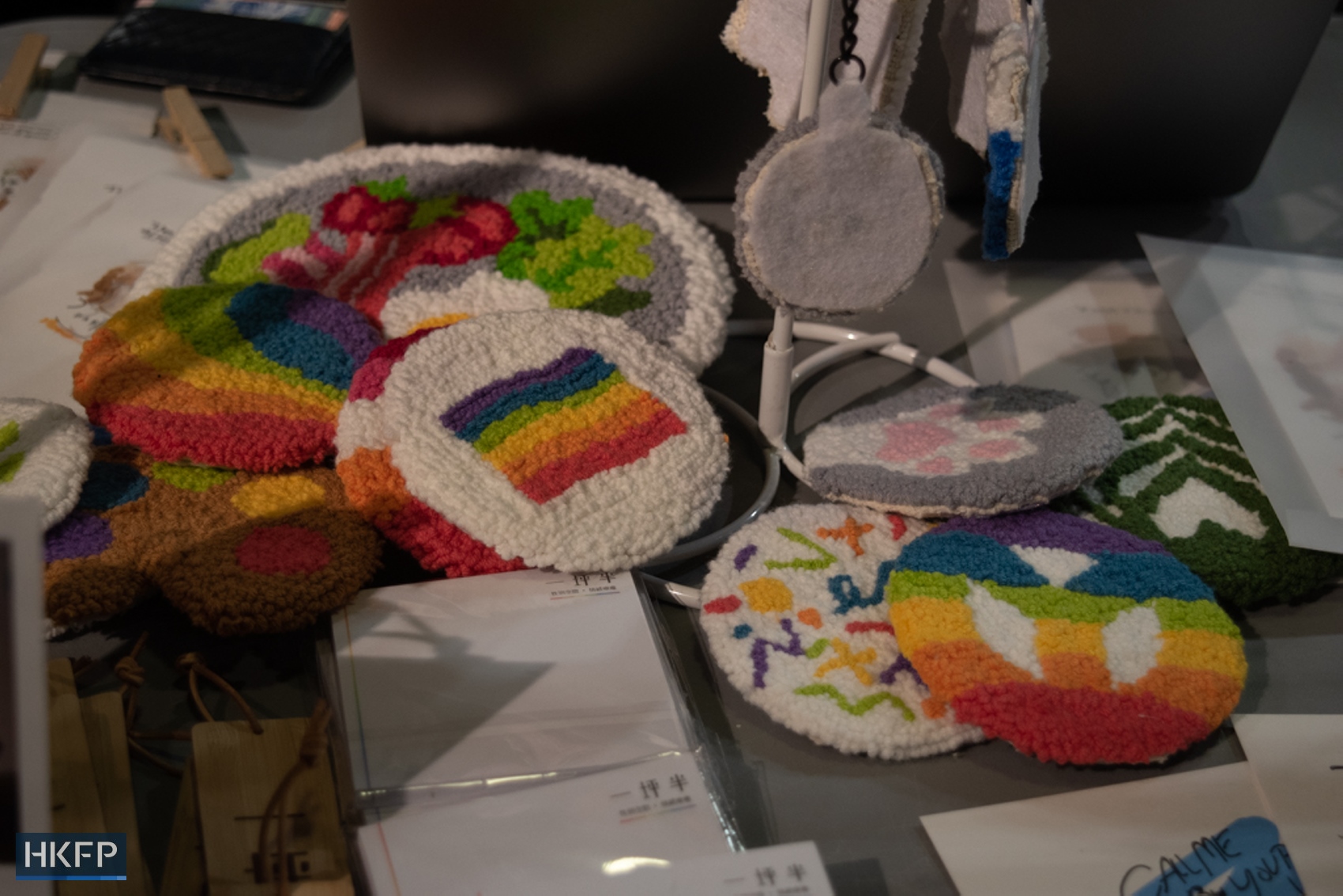
Another “myth” is that asexual people do not have sex at all. That may be true for some who are really repulsed by sex, but asexual people can and will have sex. They do not necessary find an attraction in it, but they could do it out of various reasons, such as fulfilling their partner or satisfying physical needs.
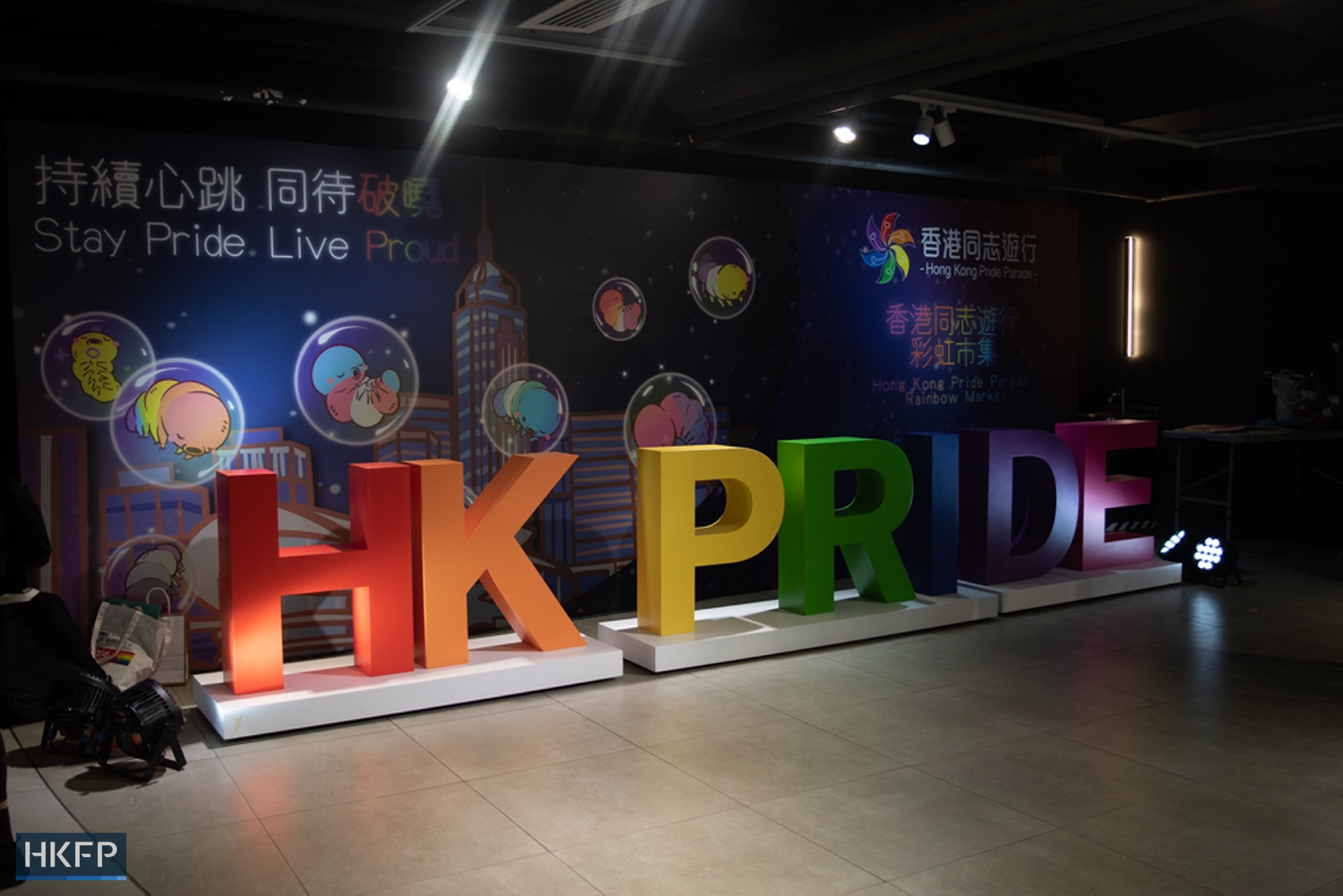
Debunking these misconceptions while explaining their feelings – or the lack thereof – can be exhausting, the trio say, but it also helps them understand who they are and find the courage to be who they are.
Support HKFP | Policies & Ethics | Error/typo? | Contact Us | Newsletter | Transparency & Annual Report | Apps
Help safeguard press freedom & keep HKFP free for all readers by supporting our team

HKFP has an impartial stance, transparent funding, and balanced coverage guided by an Ethics Code and Corrections Policy.
Support press freedom & help us surpass 1,000 monthly Patrons: 100% independent, governed by an ethics code & not-for-profit.











